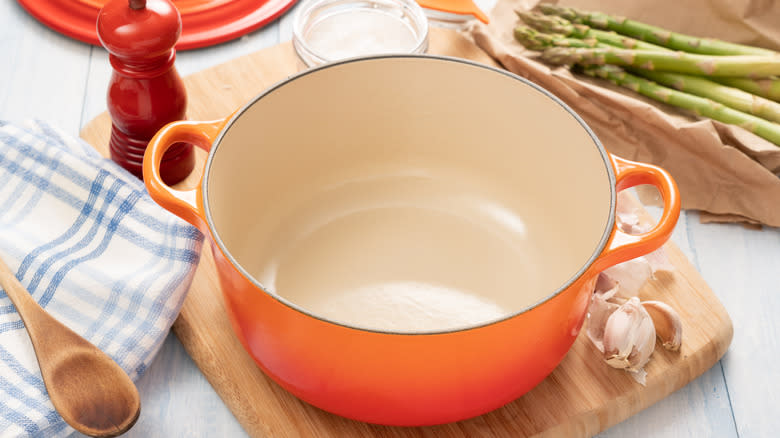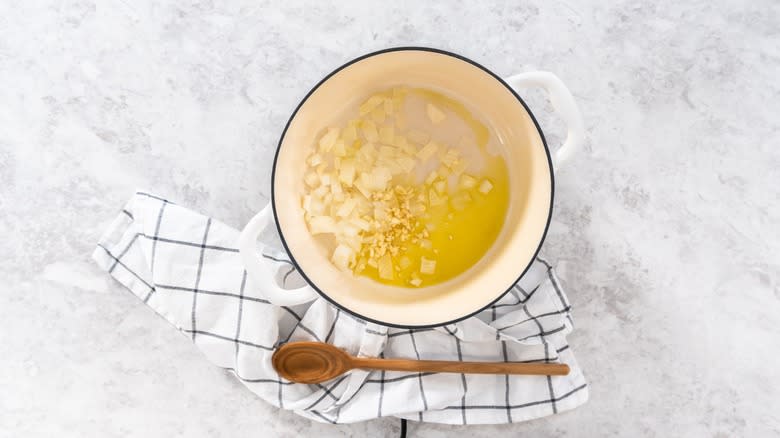The Biggest Misconception About Enameled Cast Iron

Cast iron enthusiasts tend to know about the do's and don'ts of using their cookware, and most learn pretty quickly that the common misconception about cast iron being finicky should be ignored. But enameled cast iron — which is cast iron wrapped in a porcelain coating — has its own common misconception that likely comes from its smooth, nonporous coating: The idea that it is nonstick. Food will stick to enameled cast iron if you approach it like a regular nonstick pan. It can, however, develop nonstick properties when properly used, so that's the trick to ensuring you get the best results.
Although it isn't nonstick, enameled cast iron remains well-loved for many reasons. It offers excellent heat conduction and retention for even cooking. Unlike traditional cast iron, it resists rust and is easier to clean. The enameled surface is nonporous and can handle acidic ingredients without reacting, making it ideal for a wide range of recipes. It's also easy to clean and can move seamlessly from stovetop to oven, working with all cooktops including induction. These attributes make enameled cast iron a versatile and durable choice.
Read more: The 20 Best Olive Oils For Cooking
Cooking With And Caring For Enameled Cast Iron

Although Dutch ovens are the most visible type of enameled cookware, there are other kinds, including enameled cast iron skillets. For all types, there are two key steps to reduce sticking: Preheating and adding fat such as butter or oil. Preheat the pan over medium heat for a few minutes before adding your cooking fat. If you make a fond, it's normal for some bits to get stuck when browning meat, as the process will release the sticky bits and add depth to your dish.
To ensure your enameled cast iron cookware performs optimally and lasts for years, follow the manufacturer's recommendations for care and use. Proper maintenance is key to preserving the enamel surface so food doesn't stick and the cookware stays undamaged. Chipped enamel can make it unusable, so avoiding anything that can cause chipping is especially important. Always clean your cookware thoroughly after each use to remove all food residue, but avoid using harsh scrubbing pads or cleansers, which can be damaging. Additionally, avoid putting your enameled cookware in the dishwasher as the harsh detergents can degrade the enamel over time.
Finally, be mindful of the temperature when you cook. Excessively high heat can cause the enamel to crack or chip — always adhere to manufacturer guidelines regarding maximum temperatures. With proper care and use, you can enjoy the benefits of your enameled cast iron cookware for years to come.
Read the original article on Tasting Table.


